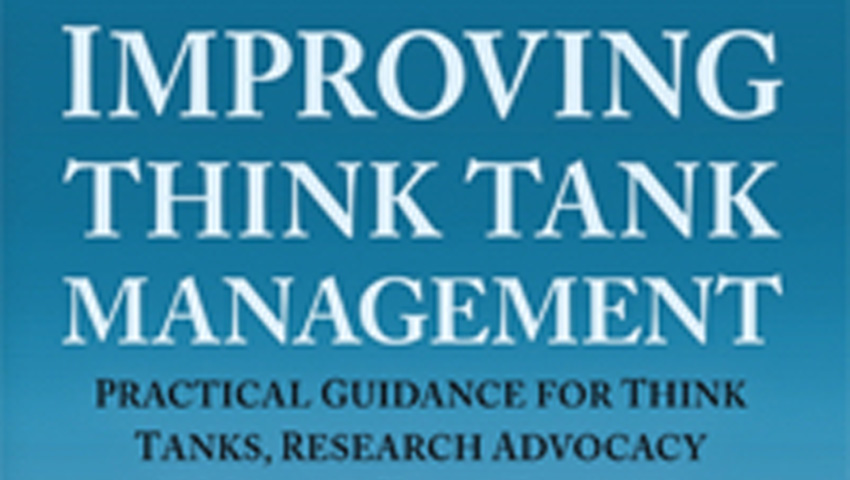By Arnaldo Pellini, KSI Senior Advisor and Research Fellow at ODI
It’s not often that you get one of the foremost experts on think tanks like Raymond Struyk to touch down in a place like Jakarta. Indonesia’s bustling capital city may be home to some nine million people, but there are only 27 think tanks in the entire country, and an overwhelming majority of them are huddled in Jakarta. This is startling figure considering that the 2014 Global Go To Think Tanks Index Report indicates that there are 6,618 think tanks operating across the world.
It’s against this backdrop that we prepared a handful of pressing questions for Raymond Struyk, who was in Jakarta at theKnowledge Sector Initiative office after launch of his new book,“Improving Think Tank Management: Practical Guidance for Think Tanks, Research Advocacy NGOs, and their Funders” , organized byArticle 33. The full interview is now online, please access it here.
We sat down with Mr. Struyk to tackle a few of the big questions:
“Is management an undervalued aspect of think tank operations?
and
“Where to start when setting up a government think tank?”
Indonesia is not exactly a hub when it comes to think tanks or the knowledge-to-policy conversation. The Centre for Strategic and International Studies (CSIS) is ranked 48th worldwide and number 2 (out of 60) for Southeast Asia and the Pacific region, followed by the Economic Research Institute for ASEAN and East Asia (ERIA) (14th) and the Institute of National Capacity Studies (INCS) (36th).
Lately we have witnessed a consolidation in the number of think tanks. These consolidations grow out of a number of factors, such as a shift or reduction in funding, increased competition and need to highlight more clear specialization, the impact of social media and digital knowledge which require quicker response times. All of which highlights the need to better understand if and how management processes and systems play any role in the think tank playing field.
Here are a few decisive take-away from our discussion:
- The main preoccupation of think tanks has to be to conduct high quality research and communicate and distribute it well. At the same time, think tanks have to realize that investment in management processes directly contribute to the production of good quality research and the subsequent communicate of findings. The think tanks that know how to invest the right amount of resources, and the management of their operations will continue to be effective and efficient. Think tanks tend to underestimate the value of investing in managing systems (e.g. 20% of think tanks have a time sheet system monitoring time spent by staff doing research, engagement, operation, bidding, etc.). The trick is to find the right balance between management systems and the space and creativity required to produce and communicate good quality policy research.
- Staff motivation is an often undervalued area in policy research think tanks. Staff morale and job satisfaction is critical to the quality of the research produced by think tanks. Simple and clear co-authoring policies that give visibility through knowledge products, coupled with events meant to encourage and motivate younger staff can go a long way toward help build careers as well as a sense of affiliation and loyalty to the think tank.
- Even though government think tanks might be considered a special category due to their close link with the government and public institutions, their establishment faces similar issues. Credibility from the start is critical, and therefore, the key priorities must be to produce good quality policy research and communicate it well. Support systems such as HR, finance, etc., will then follow. The trick, during the early stages of establishment, is to balance the need to respond quickly to inquiries by policy makers while at the same time getting more substantial pieces of research underway to build and bolster the think tank’s sustainability.
These are the main points for me. It would be interesting to know what you think. Please write to us at apellini@ksi-indonesia.org






